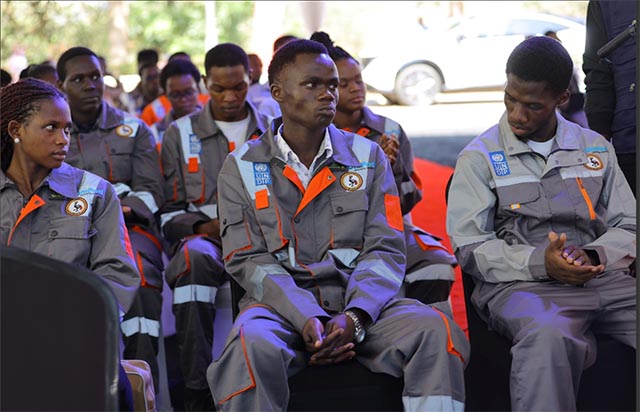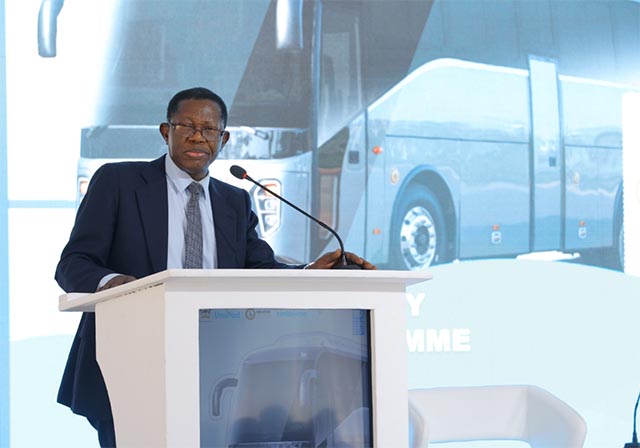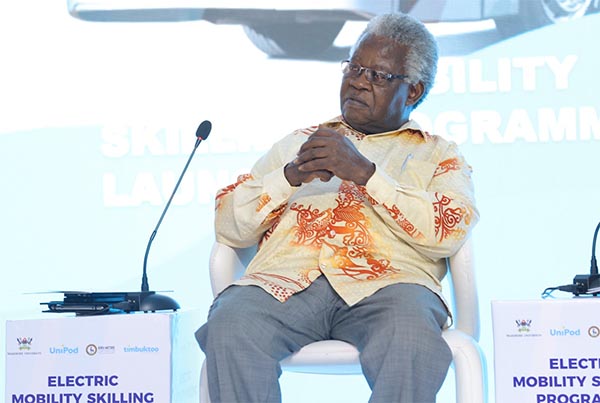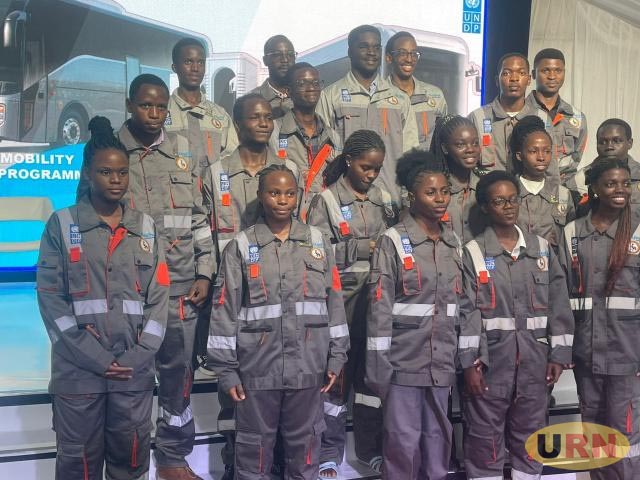
Kampala, Uganda | THE INDEPENDENT | Twenty five students from Makerere University have been selected to participate in a one-year training program organized by Kiira Motors. The program is aimed at equipping the students with skills in electric mobility and related technology.
The selected students are from various engineering disciplines at the university, including Electrical, Biomedical, Software, Mechanical, and Computer Engineering, as well as the Bachelor of Science in Physics program.
Out of the 25 students, 13 are female and 12 are male. They were selected through a competitive process, with only those who achieved first-class and second-upper grades qualifying for interviews. The top performers were subsequently enrolled in the program.
The training aims to provide participants with foundational knowledge in electric vehicle technology, renewable energy systems, battery cell technology, smart grid systems, and electric vehicle powertrains. It also seeks to prepare the students for careers in electric vehicle technologies and related industries.


The curriculum includes key topics such as the basics of electric vehicles, the use of battery-powered electric motors, and various charging methods, including Level 1 (standard home outlets), Level 2 (240-volt outlets), and DC Fast Charging.
According to the program outline, if the students remain dedicated and complete the training, they will be appointed as Associate Researchers at Kiira Motors Corporation.
Speaking at the launch of the program on Tuesday, Professor Buyinza Mukadasi, who represented Vice-Chancellor Professor Barnabas Nawangwe, stated that although the university had not previously prioritized green energy advocacy, this initiative marks the beginning of the institution’s commitment to promoting sustainable energy solutions.
“I know that this is not the beginning. Discussions of climate change and how to mitigate it have been going on. However, we had not consolidated our activities to avert and also participate in the management of the effects,” Professor Buyinza said.
“In this country, in terms of transport we are familiar with the two-wheel, and ageing matatu, and these are the major polluters themselves, how do we overcome this? It is the initiative that we taking on today. We truly believe that by training and having more experts in the field, we shall be able to transition to green energy and also reduce our pollution rates,” he said
Engineer Fred Matovu from Kiira Motors highlighted that the skilling program comes with high expectations, particularly the goal of equipping students with practical skills in the electric vehicle sector.
He explained that the program will consist of both theoretical and practical sessions, starting with an introduction to electric vehicles, which will cover all the essential basics the students need to understand.
“As part of the program arrangement, we shall have theoretical classes where we shall give foundation knowledge and later we shall have practical sessions where the students shall be allowed to try what they have learned, so we shall take these students to see how some of the technologies are being applied,” he said

“The modules will start with an introduction to electrical vehicles, before going into the theoretical concepts, among others,” Matovu added
UNDP Resident Representative, Nwanne Vwede Obahor, urged the students to make the most of the opportunity to contribute to the global green energy agenda and to shape their own futures.
“I appeal to you today, please don’t treat this with reluctance, give it all you can. take about this opportunity because you won’t look back for years to come,” she said.
Adding; “The skilling program aligns with global trends toward net-zero transition to keep the global temperature increase below 1.5°C as stipulated in the Paris Agreement on climate change. In 2024, the transport sector emitted 8.24 billion metric tons, accounting for roughly 21 percent of global CO₂ emissions that year. The transport sector is therefore a crucial area of intervention in combating climate change.”
Twinomujuni Mutunji, a student selected from the Bachelor of Electrical Engineering program, shared that he had always hoped to make an impact in the transition to green energy, which he views as a promising and untapped field. “When I had about this project, I thought about this innovation I realized it comes with so many opportunities starting from employing many people, but also helping in the world agenda in transiting to green energy. When the call came up I thought can grab this opportunity and also contribute to the sector that is seemingly a virgin one,” he said
****
URN
 The Independent Uganda: You get the Truth we Pay the Price
The Independent Uganda: You get the Truth we Pay the Price





